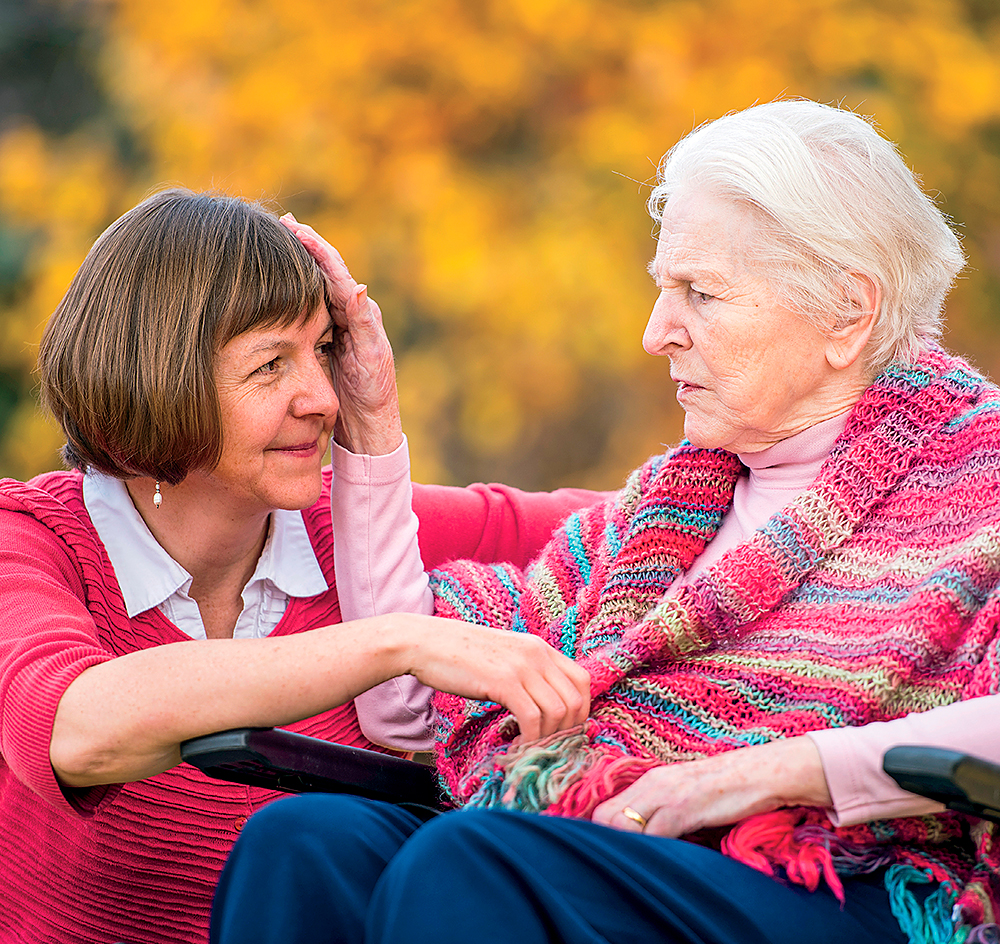
[Photo Credit: John Ulan]
Recorder and notebook in hand, then-PhD student Wendy Duggleby entered the cancer patient's room to conduct an interview for her study on pain management. One look told her the patient was too ill to talk at length, so she assured him they could postpone their conversation until that Friday. "I won't be here on Friday," the patient responded, predicting with certainty the end of his life. He told Duggleby that his pain was minimal. "Do you know why?" he asked. She turned on her recorder, waiting for his answer. "It's because I have hope."
Inspired by this moment, Duggleby dedicated the next 15 years to researching the impact of hope. Her work accelerated significantly in 2010 when she was the first person to be offered the University of Alberta's Nursing Research Chair in Aging and Quality of Life. In total, she has completed 25 studies, with participants including dementia and cancer patients, family members, caregivers, palliative-care nurses and rural patients. Results from these studies all point to the fact that hope plays a powerful role in helping people live their final days with dignity and peace.
Duggleby's research on hope is mining the essence of humanity, helping participants determine what is important to them and what gives them purpose in life. What she's found is that it's not just patients who benefit from having hope but also caregivers and health-care providers. With hope, people who are dying often have less pain, caregivers experience more joy and health-care providers report being happier in their work. "We've seen people mend relationships as they learn to communicate what they hope for," says Duggleby, who earned her master's degree in nursing at the U of A. "We've helped people communicate with their doctors and nurses, helped them make decisions for themselves."
Anke Eastwood (pictured with her mother), a caregiver whose mother lives with Alzheimer's, participated in Duggleby's most recent study after hearing about it from a friend. Eastwood's 80-year-old mother had repeated herself for years before the family realized something was amiss. Last fall, Eastwood moved her mom to a long-term care facility 30 minutes from Eastwood's Edmonton home.
Just as Eastwood joined the Living with Hope study, her dad was diagnosed with cancer and given only a few months to live. Through the duration of the study, Eastwood spent much of her day driving between each parent's care facility. She felt guilt that she could not be with each of them more, that she spent more time with her dying dad than with her mom, that her two teenage daughters and husband missed her. That kind of guilt, Duggleby says, is a huge factor in limiting people's hope and diminishing their quality of life.
Duggleby's study asked Eastwood to do two exercises. First, she watched a short film called Connecting with Hope in which people shared how they'd found, maintained and chosen hope despite their discouraging circumstances. "I felt like I was not alone in the boat," Eastwood says.
Next, she wrote in a journal every day for four weeks, focusing on where she found hope that day and what she hoped for the next day. "When you're writing it out, you realize that you're doing the best you can under the circumstances," says Eastwood. "Writing every day helped me appreciate the smaller things so I didn't have to hope for the bigger things."
And her hope begat small successes. "For my dad, I hoped he'd be comfortable. When I realized that he couldn't drink Ensure without getting sick, I began mixing it with milk. He was able to eat in comfort, and I felt good that I could do something."
Duggleby's translational work is informing nursing research, practice and policy. It has led to the inclusion of Living with Hope programs in health-care facilities and informed the education of health-care providers. Duggleby's research teams have produced four international-award-winning Living with Hope documentaries for patients and caregivers. An online toolkit developed through her work has made the program more accessible to the public (changestoolkit.ca). As a result, the terminally ill, seniors and their families have better access to support.
"My intent has always been that I do something that makes a difference," says Duggleby. Be it in the taste of a favourite food, the scent of a lily, the kiss of a child, "hope is the essence of life."